Publications
Articles, publications, books, tools and multimedia features from the U.S. Institute of Peace provide the latest news, analysis, research findings, practitioner guides and reports, all related to the conflict zones and issues that are at the center of the Institute’s work to prevent and reduce violent conflict.
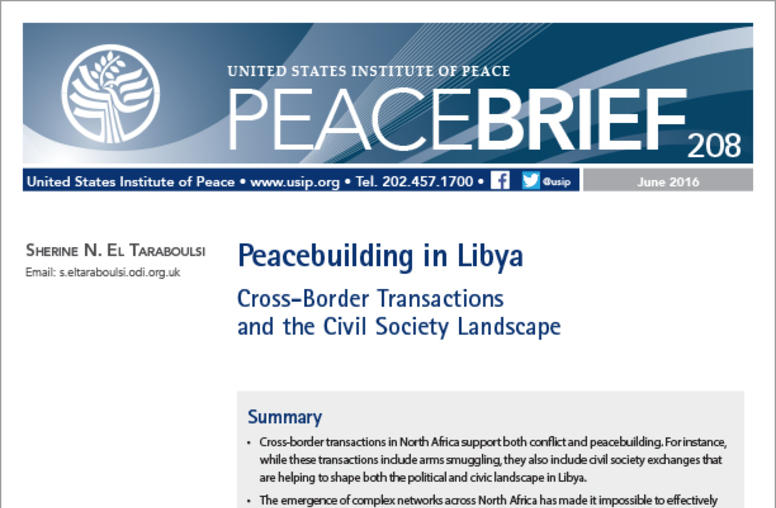
Peacebuilding in Libya: Cross-Border Transactions and The Civil Society Landscape
Cross-border transactions have been shaping the Libyan civil and political landscape for decades. However, desk research and field interviews in Tunisia reveal that interventions for peacebuilding are not fully accounting for these transactions or other regional activities. This brief argues that supporting local and regional actors in working toward a unified vision for Libya requires factoring in cross-border, civil society exchanges and the tensions that affect them.
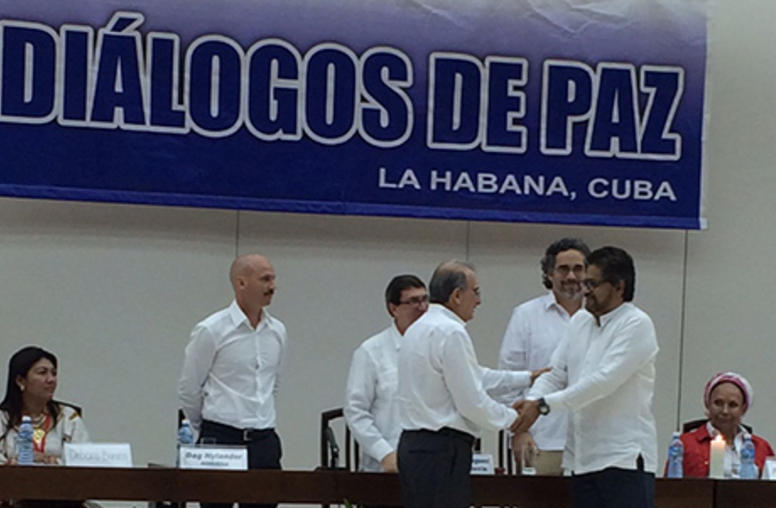
Q&A: Colombia Cease-Fire Accord Marks Historic Turn
More than a half-century of internal warfare in Colombia is on the brink of a peaceful resolution after four years of talks that suggest how other seemingly intractable conflicts in the world also might be brought to an end. With the announcement yesterday of a ceasefire between the government and the Revolutionary Armed Forces of Colombia (FARC-EP), the adversaries in one of the world’s oldest guerilla insurgencies disclosed new agreements on the two major issues that were holding up a final...
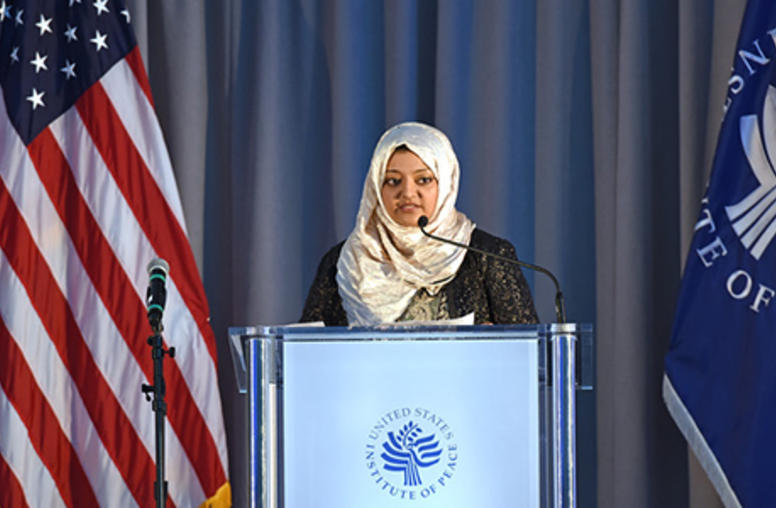
USIP Iftar: Don’t Just Tolerate Diversity, Embrace It
The traditional Muslim call to prayer echoed across USIP’s atrium yesterday evening as the institute ushered in its third annual Iftar, marking the breaking of the daily fast during the holy month of Ramadan. But it wasn’t just one imam’s voice. Instead, five Muslim clerics and a poetry reader from six traditions—Senegalese, Syrian, Pakistani, Iranian, Turkish and Moroccan—represented the theme of the event: The Islamic Mosaic.
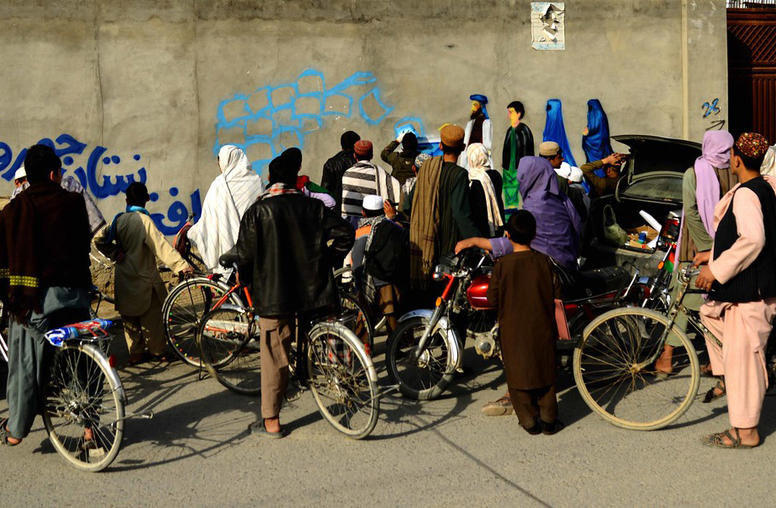
Gauging What Works and What Doesn’t in Peacebuilding
Those of us who work in peacebuilding are constantly reminded that the challenges we confront are big and the resources we command are small. So there is both a practical and an ethical obligation to use those resources wisely and be certain of their value. Toward that end, a little over four years ago, USIP asked me to become the organization’s first director of learning and evaluation. At its core, my job description was simple: help the Institute use evidence to do more of what works and less of what doesn’t.
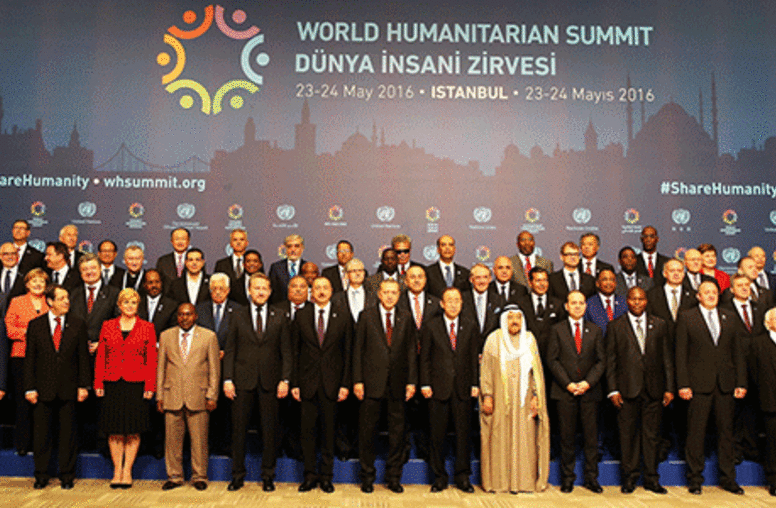
Why the World Humanitarian Summit Meeting in Turkey Really Does Matter
John Norris told Foreign Policy readers that the Istanbul conference would be irrelevant. It wasn’t.
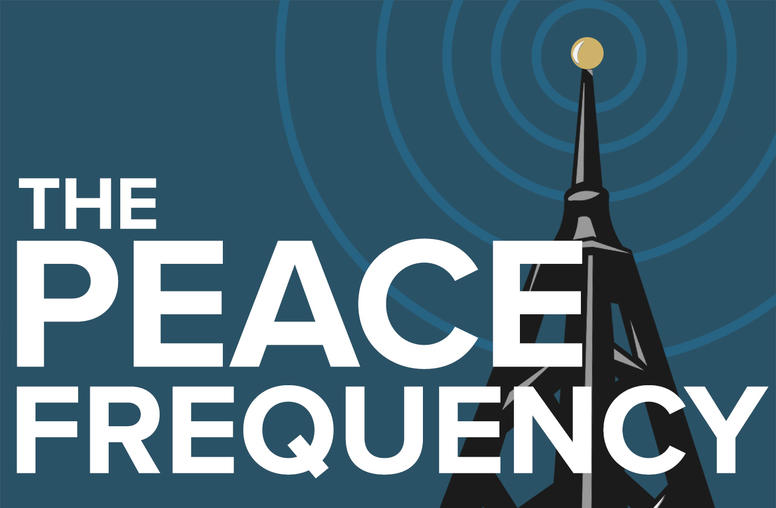
Episode 36 - Saba Ismail
In this episode we speak with Saba Ismail, who co-founded with her sister, Aware Girls – a young women-led organisation working for the empowerment of young women and gender equality in Pakistan. Her bravery and activism was acknowledged by Foreign Policy Magazine, which awarded her as one of the 100 Leading Global Thinkers of 2013.
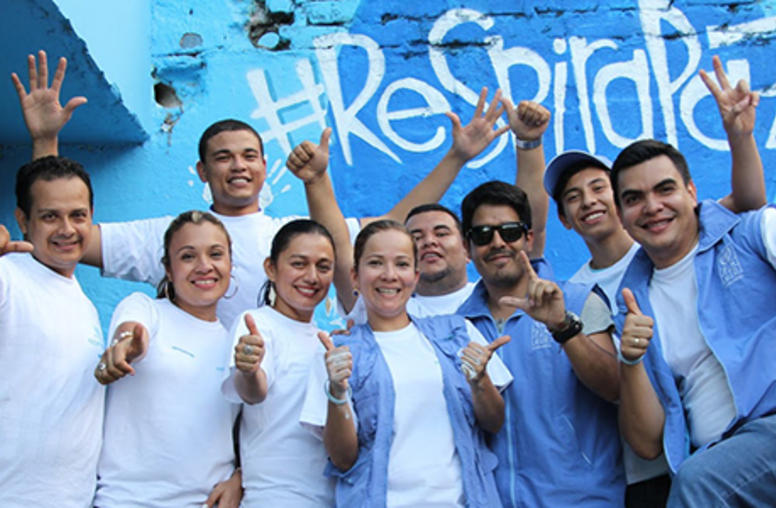
U.N. Youth-and-Peace Resolution: The Hard Work Begins
The United Nations Security Council recently addressed a force quietly shaping the world: a generation of young people that, numbering 1.8 billion between the ages of 10 to 24, is the largest in history, and has enormous potential to build peace amid the violence that so often rocks their world. The council’s resolution on youth, peace and security was the first to deal with the role of young people on these issues. The hard work now is to turn the resolution’s words into reality, H.E. Ahmad ...
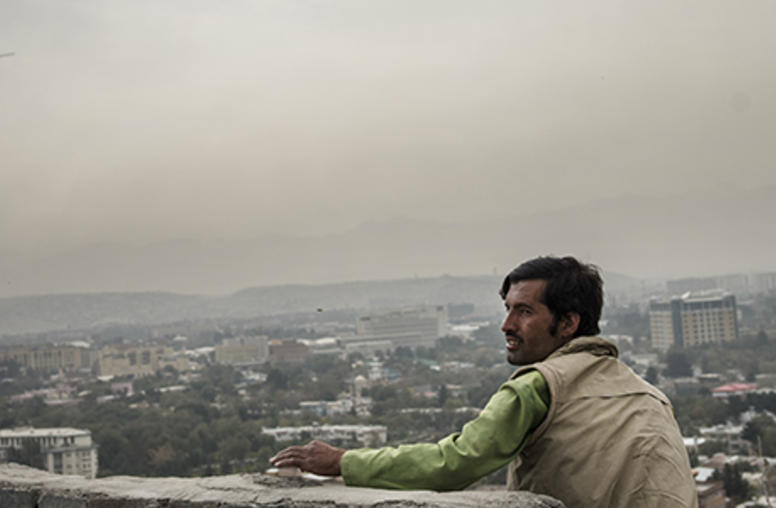
Afghanistan’s Lesson: Strategic Costs of Civilian Harm
After 15 years of U.S. military operations in Afghanistan, the strategic importance of avoiding harm to civilians is an inescapable lesson that policymakers need to fully integrate in American doctrine, planning and training, say the authors of a new report. The report offers “practical, pragmatic, concrete recommendations” to strengthen U.S. military operations overseas by averting losses to civilians and their communities, said former Undersecretary of Defense Michèle Flournoy in a public d...
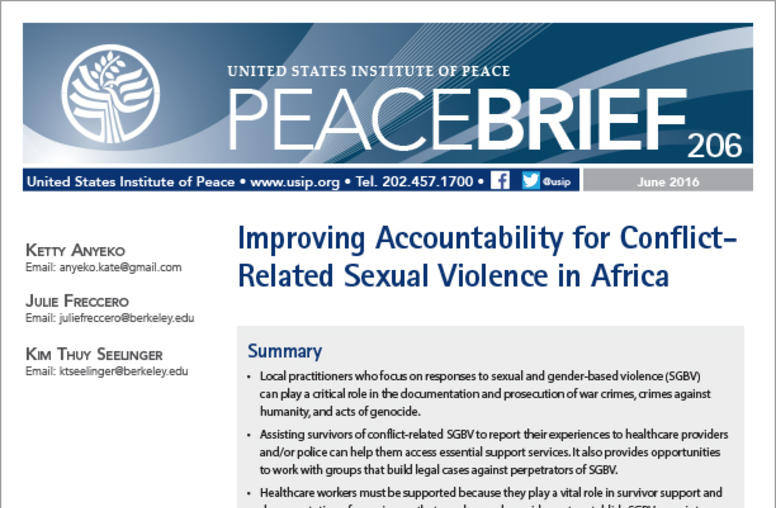
Improving Accountability for Conflict-related Sexual Violence in Africa
Local practitioners who work with survivors of sexual and gender-based violence (SGBV) on a daily basis during peacetime also play a vital role in accountability for conflict-period SGBV. With appropriate training and resources, they can even contribute to the documentation and prosecution of SGBV committed as a war crime, crime against humanity, and act of genocide. This Peace Brief illustrates how new research from the Human Rights Center at the University of California, Berkeley, School of...
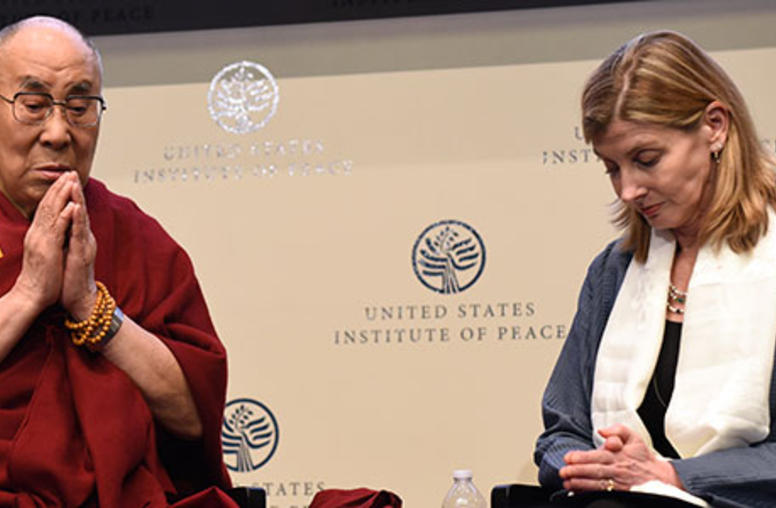
Dalai Lama Urges Greater Compassion, Role for Youth
A day after the United States’ deadliest-ever mass shooting, the Dalai Lama led a Washington audience in a silent prayer for peace. But he said prayers will be ineffective without “serious action” to erode religious and other communal divisions. Building peace in and among nations requires improved education, leadership by youth and women, and “personal contact” among people of disparate groups, the Buddhist spiritual leader said. “We have to live on this small planet… with a sense of brother...